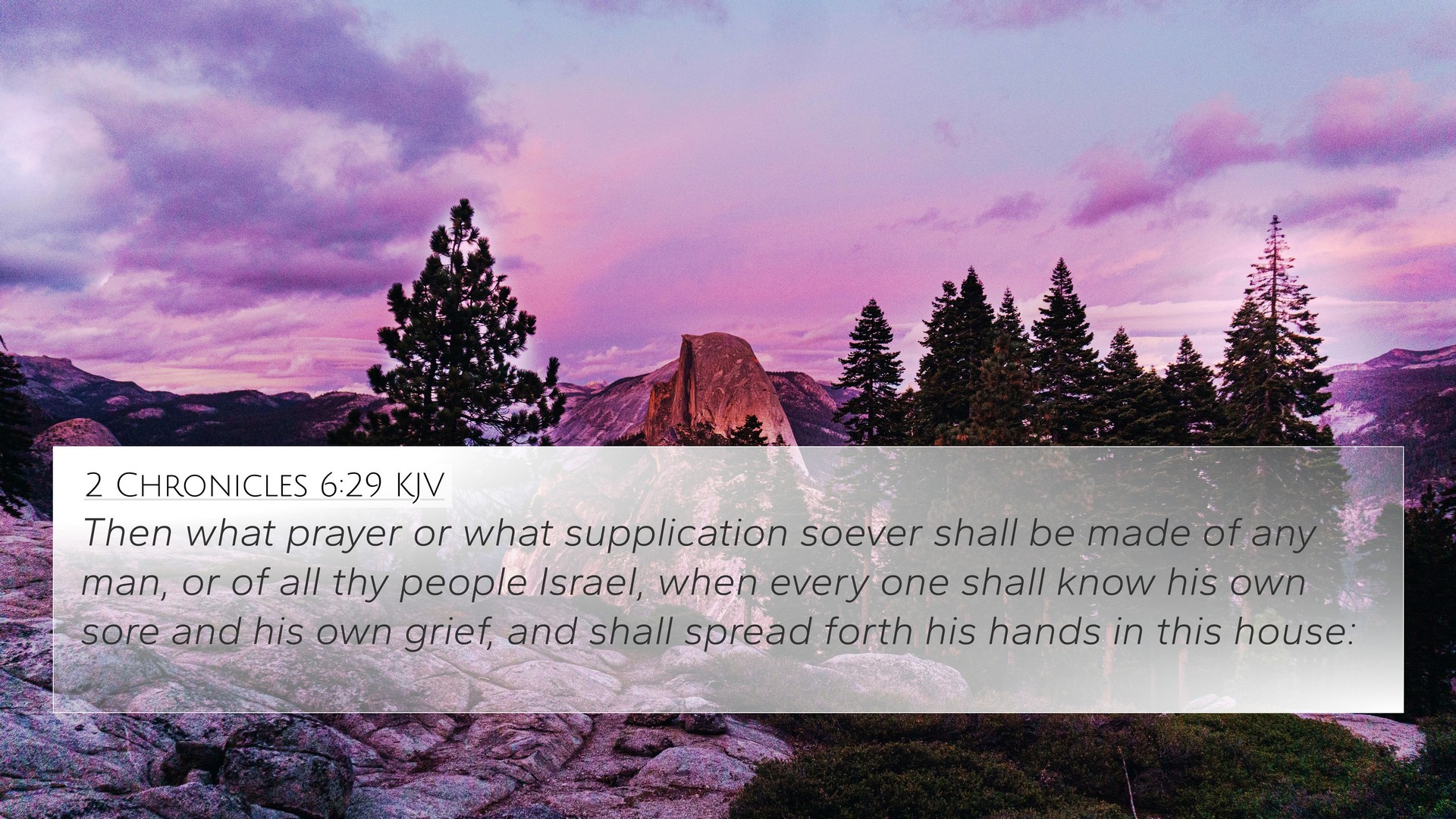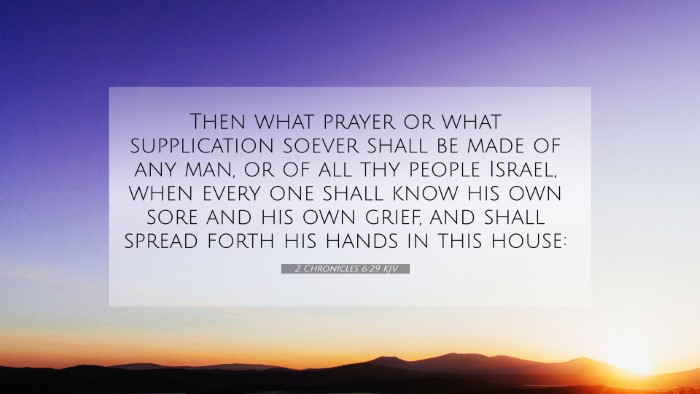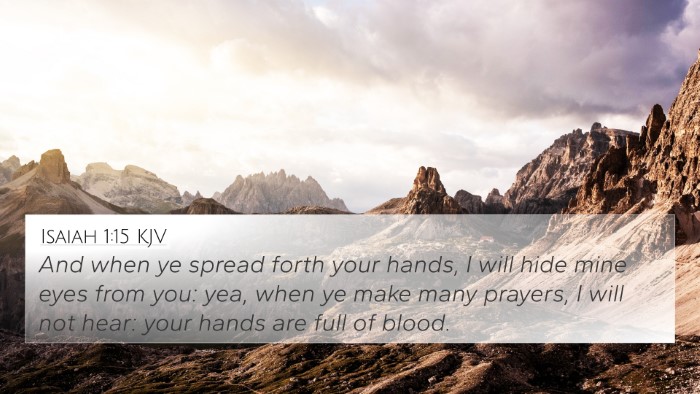Understanding 2 Chronicles 6:29
The verse 2 Chronicles 6:29 states,
"Then what prayer or what supplication soever shall be made of any man, or of all thy people Israel, which shall know every man the plague of his own heart, and spread forth his hands toward this house:"
This passage is part of Solomon's dedicatory prayer concerning the temple and reflects the importance of humility, supplication, and recognition of personal sin.
Summary of Biblical Context
This verse comes from a larger passage where King Solomon is dedicating the newly built temple, asking for God’s presence and mercy upon Israel. It emphasizes the relationship between the prayer of the individual and God’s response to their sincere repentance.
Commentary Insights
-
Matthew Henry's Commentary:
Henry explains that Solomon acknowledges the reality of human sin. The “plague of his own heart” signifies the inner corruption and need for divine healing. The act of spreading forth one's hands is symbolic of earnest prayer and seeking God’s mercy.
-
Albert Barnes' Notes:
Barnes states that this verse implies that God is accessible to all who come in repentance. The multitude of prayers represents the collective need of the nation, suggesting God’s readiness to hear and respond to genuine cries for help from any individual.
-
Adam Clarke's Commentary:
Clarke highlights that the verse not only refers to the physical act of prayer but also emphasizes the necessity of recognizing personal faults. It suggests a communal aspect to prayer, indicating that these prayers should be directed towards the temple, the symbol of God’s presence on earth.
Bible Verse Cross-References
This verse has several connections to others throughout the Bible:
- 1 Kings 8:38-39: Encourages cry of supplication for healing and forgiveness.
- Psalm 51:17: God desires a contrite heart and humility in prayer.
- Jeremiah 29:12-13: God promises to hear those who seek Him with their whole heart.
- Matthew 7:7: Jesus invites prayers for any need, emphasizing asking, seeking, and knocking.
- James 5:16: The prayer of a righteous person is powerful and effective.
- Proverbs 28:13: He who conceals his sins does not prosper, but whoever confesses will obtain mercy.
- Acts 19:18: Many believers confessed and showed their deeds, reflecting the importance of acknowledging one's sins.
Thematic Bible Verse Connections
This passage can be linked thematically to various scriptures that explore concepts of repentance, forgiveness, and the power of prayer. Here are some related themes:
- Repentance: Recognizing personal sin as essential before turning to God.
- Divine Mercy: God's willingness to forgive those who earnestly seek Him.
- Community in Prayer: The strength found in collective supplication.
Inter-Biblical Dialogue
The connections between the Old and New Testament often highlight the continuity of God’s character and promises. Prayer and recognition of sin appear throughout the Bible, forming a dialogue that encourages believers to acknowledge their hearts before God. The New Testament also emphasizes humility and prayer, resonating with the themes found in 2 Chronicles 6:29.
Application for Today's Believers
Believers today can draw from 2 Chronicles 6:29 by understanding the necessity of approaching God with honesty about their hearts. Making a point to seek forgiveness and express heartfelt supplications reflect true humility. In communal worship settings, acknowledging collective needs while seeking God's mercy reinforces the importance of prayer.
Tools for Bible Cross-Referencing
There are multiple resources available for those wishing to explore cross-referencing in the Bible:
- Bible Concordance: Help identify key themes and words across verses.
- Bible Cross-Reference Guide: Useful tools that link related scriptures.
- Cross-reference Bible Study Materials: For deeper thematic studies.
- Bible Chain References: Enabling the tracing of themes through verses.
- Comprehensive Bible Reference Resources: For those preparing sermons or teachings.










